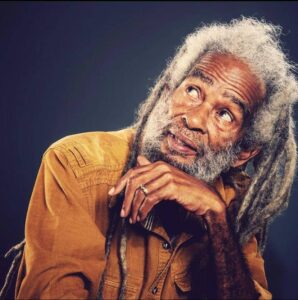
Addressing the status of Jamaican ‘Patwah’
Dear Editor,
On October 11, 2023, The New York Times carried an article titled ‘A Patois Revival: Jamaica Weighs Language Change as Ties to Britain Fray’ in which the author, Simon Romero, noted, “A push is underway to make Jamaica’s Patois an official language, on par with English, as the country weighs cutting ties to the British monarchy.”
Since this publication, which was later redistributed via other media outlets in different countries and languages, including French and Spanish, many Jamaicans both locally and in the diaspora have added their voices, once again, to either support or discredit the push. Having added my voice to Romero’s article, I would like to share some thoughts in this space.
Firstly, let me debunk the notion that we (linguists and language and culture enthusiasts) are calling for Jamaican creole to become the official language of Jamaica. In a recent letter to the editor carried in The Gleaner, Adrian Lawrence indicated, “The proposal to make Patois the official language would seriously negatively affect Jamaica’s social and economic development.” On the contrary, we are not asking for the Jamaican standard English to be replaced as the official language of Jamaica. Instead, we are calling for the Jamaican Patwah to be made an official language. There are many countries in the world that have more than one official language, such as Zimbabwe, South Africa, Rwanda, and India. Several of these countries have recognised their indigenous languages.
Even without conducting formal research, our reality is that the majority of Jamaicans are bilingual, with a variation of the Jamaican ‘Patwah’ being the dominant first language, while English is the secondary one. It is, therefore, counterproductive to ignore or dismiss the fact that most of the population is treated as though English is our primary native language.
This stance has had several implications on pedagogic approach, curriculum development, and even exam results. This is why those of us who are the experts in first and second language acquisition have made repeated calls for bilingual education and for English to be taught from a second language perspective.
Research conducted by the United Nations Educational, Scientific and Cultural Organisation (UNESCO) underscores that children’s first language is optimal for literacy and learning throughout primary school. In other words, children stand a better chance of developing their comprehension skills in their native language. In spite of this blatant evidence, many educational systems around the world insist on exclusive use of one or more or sometimes several privileged languages. This means excluding the other language(s) that children speak, while ultimately leads to excluding the children who speak their native language(s).
UNESCO has encouraged mother-tongue instruction in primary education since 1953, and has highlighted some of the advantages of mother-tongue education right from the start. With this set-up, children are more likely to enrol and succeed in school; parents are more capable to communicate with teachers and participate in their children’s learning; and rural children with less exposure to a dominant language will stay in school longer and repeat grades less often. In fact, one of the most important benefits is that bilingual or multilingual education tends to develop better metacognitive skills compared to monolingual children.
Therefore, our people stand a better chance of excelling by having two native languages compared to just one. Promoting Jamaican ‘Patwah’ does not mean English will further suffer. It will require the investment of adequate resources and the equipping of more personnel to help with the transition.
Jamaica and its culture are known globally. Jamaican ‘Patwah’ is now taught at York University, Canada; Harvard University, USA; and City College, Birmingham, UK; among other institutions. In fact, during my time working in a French university, I also exposed my students to the Jamaican language. They were all intrigued and wanted to learn more. Even diplomats who come to Jamaica take a keen interest in our national language. Therefore, just as how we learn French, Spanish, and Mandarin, etc, there are foreigners who would be very open to learning Jamaican ‘Patwah’.
Our people ought to be empowered in both their mother tongue – Jamaican – and English. Jamaican ‘Patwah’, though developed through a pidgin during slavery days, forms a unique and significant part of our identity.
We have gradually transitioned from the era in which our mother tongue was associated with those of the lower class and the uneducated. Being versed in both languages is a marker of true linguistic depth and success. Khadine “Miss Kitty” Wilkinson epitomises this perfectly.
Oneil Madden
maddenoniel@yahoo.com






















